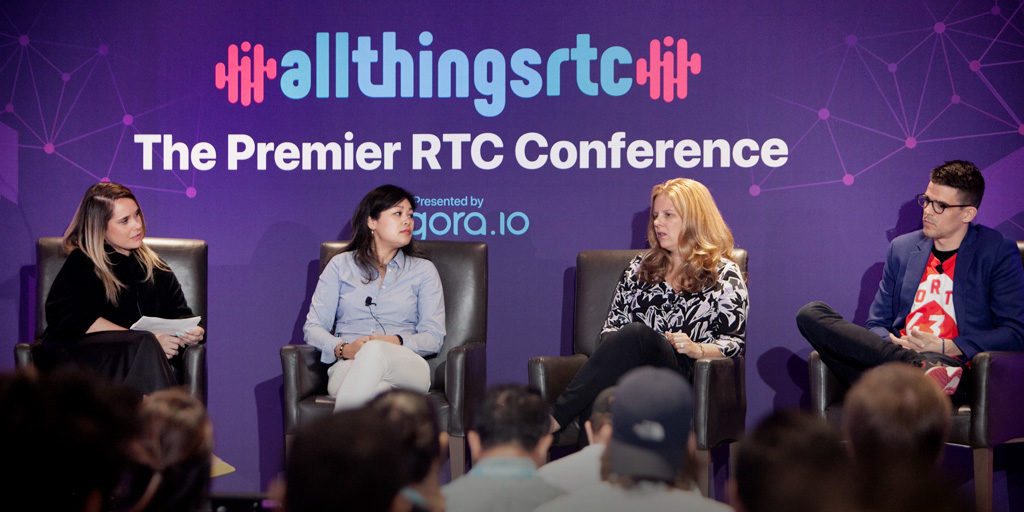
How RTC is Opening Doors to More Human Connections Across the Globe
This presentation was run by Mish Matheus, a social and digital media consultant, who handled questions and discussions with Carrie Wells, the Founder & CEO at One Touch Brands, Carter Williams, CEO at Lightmob, and Tina Kuan, CMA at Castbox. The topic revolved around RTC and video/audio industry changes that are impacting people on a very personal level.
The speakers noted that communication and user engagement has gone increasingly mobile, having surpassed desktop, and more mobile apps are being created with richer features that are widely used. There’s a constant rise in voice and video apps across all sectors, and this is making many more touchpoints throughout our daily lives where real-time voice and video interactions are more common.
Matheus asked how each company on the panel came into being, and what need it was meeting. For Castbox, it was providing a platform for podcast enthusiasts and tapping into the growing audio industry. For One Touch Brands, it was figuring out how to use two-way video for companies and brands who wanted to have digital customer experiences. And for Lightmob, it was being an online photography workshop platform that lets photography enthusiasts and pros learn how to use smartphones and digital cameras better directly from one another.
Bridging a Generational Gap
One big issue discussed was how relationships and connections are fundamental to the human experience, and that RTC is changing the way these function. When asked how the online landscape has impacted our human connections, the panelists brought up several points.
First, there’s a big generational shift, with younger technology users being far more comfortable with mobile RTC than older. More video and audio is being used than ever before, bringing a truly personal, face-to-face experience to the mobile platforms. And RTC is also allowing for more immediate interaction and satisfaction via digital interfaces that automate the whole experience.
Getting Relational Validation
People want instant gratification and validation in our interactions, and RTC allows this to be offered via different social channels and streaming platforms. It has hanged how we get our news—but there’s also the threat of ongoing digital isolation, where meaningful, substantive relationships go overlooked in preference for a surface-level digital community.
Carter made the point that every company that provides a mobile experience must take responsibility for the interactivity and consequences, especially now that RTC can turn every piece of mobile life into a transaction.
Biggest Opportunities of RTC
Finally, the panelists pointed out the main opportunities that RTC offers companies and people, which included delivering better content and higher interactivity. The education space and online learning is being revolutionized through virtual universities and online adult education. Health and wellness is booming in digital platforms, and gaming has become its own competitive social platform ecosystem, with services like Discord and Twitch letting players share in-the-moment experiences.
But beyond mere entertainment and engagement, there’s a huge opportunity for improved healthcare and mental health providers with video peer-to-peer support groups and counseling. Nonprofits can make direct connections that emphasize the human experience and bring about positive change in people’s lives, offering helpful resources and reaching isolated people or communities.
Want to see the whole panel? View the video here!